Home>diy>Building & Construction>What Type Of Industry Is Construction
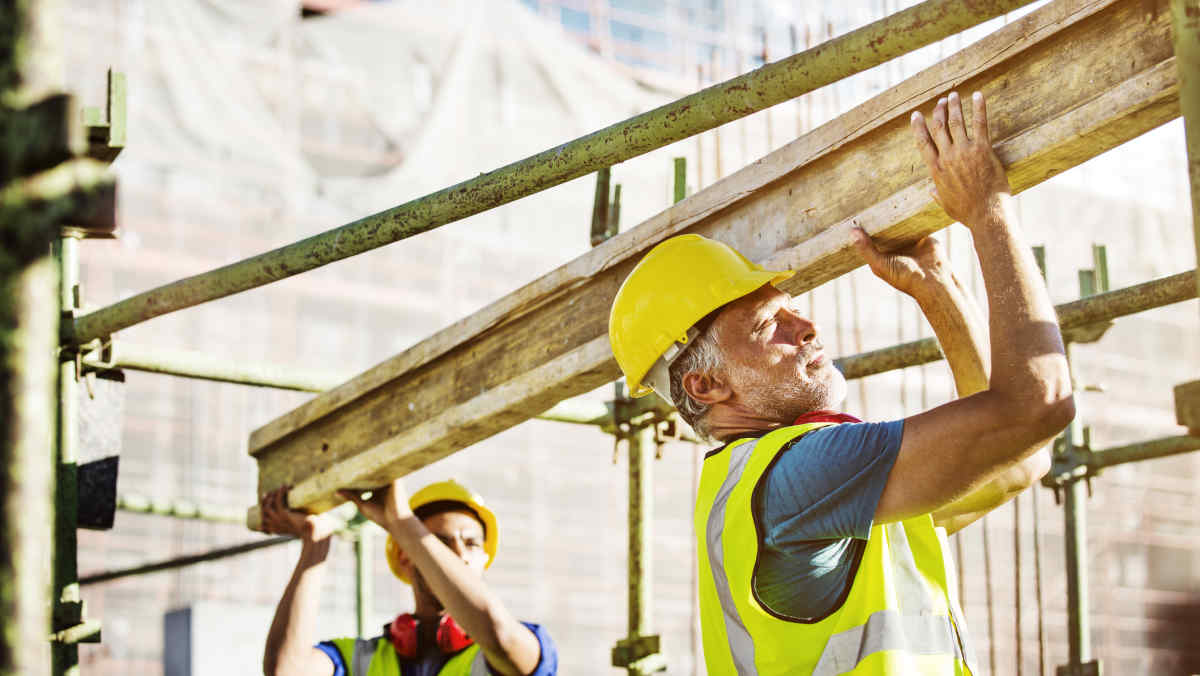

Building & Construction
What Type Of Industry Is Construction
Modified: January 19, 2024
Discover the type of industry that construction falls under. Find out more about building-construction and its significance in the market.
(Many of the links in this article redirect to a specific reviewed product. Your purchase of these products through affiliate links helps to generate commission for Storables.com, at no extra cost. Learn more)
Introduction
The construction industry plays a vital role in the growth and development of societies around the world. From building homes and office spaces to constructing large-scale infrastructure projects, the construction industry encompasses a wide range of activities that shape our built environment. In this article, we will explore the definition, importance, types, trends, and challenges of the construction industry.
The construction industry can be defined as the sector that specializes in the planning, designing, and construction of buildings, structures, and infrastructure. It involves the collaboration of various professionals, including architects, engineers, contractors, and subcontractors, who work together to bring construction projects to life.
The importance of the construction industry cannot be overstated. It directly contributes to the economic growth of a country by creating job opportunities and stimulating investment. Additionally, the construction of buildings and infrastructure facilities provides essential services such as housing, transportation, healthcare, education, and recreational spaces, improving the overall quality of life for communities.
In terms of construction projects, there are several types that fall under the umbrella of the construction industry:
- Residential Construction: This type of construction involves building homes, apartments, condominiums, and housing complexes. It focuses on creating comfortable living spaces for individuals and families.
- Commercial Construction: Commercial construction involves the construction of office buildings, retail stores, hotels, restaurants, and other commercial spaces. These structures are designed to accommodate businesses and provide spaces for productive work and customer engagement.
- Industrial Construction: Industrial construction focuses on the development of manufacturing plants, warehouses, power plants, refineries, and other industrial facilities. These structures require specialized construction techniques and equipment to meet industry-specific requirements.
- Infrastructure Construction: Infrastructure construction involves the development of public facilities such as roads, bridges, tunnels, airports, railways, and water supply systems. These projects are essential for transportation, communication, and the overall functioning of a society.
- Specialty Construction: Specialty construction refers to niche areas within the industry, such as healthcare facilities, educational institutions, sports stadiums, and cultural centers. These projects require expertise in specific sectors to meet unique design and functionality requirements.
With advancements in technology, the construction industry is constantly evolving to meet the changing needs and demands of society. Some of the current trends in the industry include:
Key Takeaways:
- The construction industry encompasses residential, commercial, industrial, infrastructure, and specialty projects, playing a crucial role in economic growth, sustainability, and societal development.
- Emerging trends in construction include green building, BIM, prefabrication, and safety technologies, while challenges such as cost overruns, labor shortages, and regulatory compliance require proactive strategies for success.
Read more: What Is The Construction Industry
Definition of the Construction Industry
The construction industry is a sector that encompasses the planning, designing, and construction of buildings, structures, and infrastructure. It involves a wide range of activities, including site preparation, excavation, foundation work, framing, electrical and plumbing installations, finishing touches, and project management. The industry is driven by collaboration among architects, engineers, contractors, subcontractors, and various other professionals.
The construction industry is responsible for transforming architectural plans and designs into physical structures that serve various purposes. It involves a comprehensive process that starts with evaluating the feasibility of a project, preparing budgets and schedules, obtaining necessary permits and approvals, and ultimately executing the construction process.
One of the key aspects of the construction industry is project management. Effective project management ensures that construction projects are completed on time, within budget, and meet the desired quality standards. Project managers are responsible for coordinating different teams, managing resources, communicating with stakeholders, and overseeing the overall progress of the project.
The construction industry can be further categorized into different sectors based on the types of projects it undertakes. These sectors include residential construction, commercial construction, industrial construction, infrastructure construction, and specialty construction.
Residential construction focuses on building homes, apartments, and housing complexes. It caters to the needs of individuals and families by creating safe, comfortable, and aesthetically pleasing living spaces. Residential construction projects often involve collaboration with architects, interior designers, and homeowners to bring their vision to life.
Commercial construction involves the construction of office buildings, retail stores, hotels, restaurants, and other similar structures. It aims to provide functional and attractive spaces for businesses, enabling them to carry out their operations effectively. Commercial construction projects require careful planning and coordination to meet the unique requirements of each business and industry.
Industrial construction focuses on the development of manufacturing plants, warehouses, refineries, power plants, and other industrial facilities. These projects require specialized construction techniques and equipment to meet the specific needs of the industry. Industrial construction often involves collaboration with engineers, equipment manufacturers, and industry experts.
Infrastructure construction involves the development of public facilities such as roads, bridges, airports, railways, and water supply systems. These projects play a crucial role in facilitating transportation, communication, and the overall functioning of a society. Infrastructure construction projects require collaboration with government authorities, engineers, and local communities to ensure their successful completion.
Specialty construction refers to niche areas within the industry that cater to specific sectors. Examples include healthcare facilities, educational institutions, sports stadiums, and cultural centers. Specialty construction projects require expertise in the respective fields to meet the unique design, functionality, and regulatory requirements.
Overall, the construction industry operates at the intersection of architecture, engineering, and project management, transforming ideas and plans into tangible structures that shape our built environment.
Importance of the Construction Industry
The construction industry plays a crucial role in the growth and development of societies around the world. Its importance extends beyond just creating physical structures; it significantly impacts various aspects of our lives, the economy, and the environment. Here are some key reasons why the construction industry is of utmost importance:
1. Economic Growth: The construction industry is a significant contributor to economic growth. It generates employment opportunities, both directly and indirectly, by creating jobs for architects, engineers, contractors, construction workers, suppliers, and related professionals. The industry stimulates investment, boosts productivity, and drives economic activity through various construction projects.
2. Infrastructure Development: The construction of infrastructure facilities is essential for the smooth functioning of communities. Building roads, bridges, airports, railways, and other public infrastructure improves transportation, connectivity, and accessibility. It enhances the efficiency of goods and services distribution, promotes trade, and facilitates economic development.
3. Housing and Shelter: Residential construction provides housing and shelter for individuals and families. Creating safe, comfortable, and affordable homes is crucial for meeting the basic needs of people. The construction industry helps address the housing shortage, supports urban development, and enhances the quality of life for communities.
4. Business Spaces: Commercial construction involves the creation of office spaces, retail stores, hotels, and other commercial facilities. These spaces are vital for businesses to operate and serve their customers. Commercial construction projects contribute to economic activity, job creation, and facilitate the growth of industries and entrepreneurship.
5. Job Creation: The construction industry is a significant source of employment. It provides opportunities for not only skilled workers but also unskilled laborers. Construction projects require a diverse set of skills, from architects and engineers to carpenters and masons. By providing job opportunities, the industry helps alleviate unemployment and poverty, thereby improving the overall socio-economic conditions in a society.
6. Environmental Sustainability: The construction industry has a role to play in promoting environmental sustainability. Green building practices, such as using sustainable materials, incorporating energy-efficient systems, and implementing waste management strategies, can reduce the environmental impact of construction projects. By embracing sustainable construction practices, the industry can contribute to mitigating climate change and preserving natural resources.
7. Social Impact: Construction projects have a significant social impact on communities. They create vibrant spaces for social interaction, such as parks, community centers, and public spaces. Additionally, the construction industry can contribute to social development by employing local workers, supporting local businesses, and promoting diversity and inclusion.
Overall, the construction industry is pivotal for economic growth, infrastructure development, job creation, housing provision, and environmental sustainability. Its impact extends far beyond the mere construction of buildings and structures, making it an integral part of any thriving society.
Types of Construction Projects
The construction industry encompasses a wide variety of projects, each with its own unique characteristics, requirements, and purposes. Understanding the different types of construction projects is essential for professionals in the industry. Here are some of the main types of construction projects:
1. Residential Construction: Residential construction focuses on building homes, apartments, condominiums, and housing complexes. These projects aim to meet the housing needs of individuals and families. Residential construction involves the construction of single-family houses, townhouses, multi-family dwellings, and high-rise residential buildings. It includes activities such as site preparation, building foundation, framing, interior and exterior finishes, and installation of utilities.
2. Commercial Construction: Commercial construction involves the construction of buildings and structures used for business purposes. This includes office buildings, retail stores, hotels, restaurants, warehouses, and shopping malls. Commercial construction projects have unique requirements to meet the functional and aesthetic needs of different businesses. They often involve collaboration with architects, interior designers, and contractors to create spaces that foster productivity, customer engagement, and profitability.
3. Industrial Construction: Industrial construction focuses on the development of manufacturing plants, factories, warehouses, power plants, refineries, and other industrial facilities. These projects require specialized construction techniques, equipment, and materials to meet the specific requirements of industries such as manufacturing, energy, and logistics. Industrial construction often involves collaboration with engineers, equipment manufacturers, and industry experts to ensure the efficient and safe operation of industrial facilities.
4. Infrastructure Construction: Infrastructure construction involves the development of public facilities and infrastructure that support the functioning of a society. This includes the construction of roads, bridges, tunnels, airports, railways, seaports, water supply systems, and wastewater treatment plants. Infrastructure construction projects are vital for transportation, connectivity, and the overall development of communities. They often require collaboration with government authorities, engineers, and environmental experts to ensure compliance with regulations and environmental sustainability.
5. Specialty Construction: Specialty construction refers to niche areas within the construction industry that cater to specific sectors or specialized needs. Examples include healthcare facilities, educational institutions, sports stadiums, cultural centers, and religious buildings. Specialty construction projects require expertise in their respective fields to meet unique design, functionality, and regulatory requirements. These projects often involve collaboration with specialized professionals such as healthcare planners, school administrators, sports facility consultants, and religious leaders.
It’s important to note that these construction project types are not mutually exclusive, and there can be overlap between them. For example, a construction project may involve components of both commercial and infrastructure construction, such as a mixed-use development that includes retail spaces and public transportation facilities.
Understanding the different types of construction projects enables professionals in the industry to specialize in specific areas and deliver projects that meet the unique needs and requirements of each project type, contributing to the overall growth and development of society.
Residential Construction
Residential construction is an integral part of the construction industry that focuses on building homes, apartments, condominiums, and housing complexes. It plays a vital role in meeting the housing needs of individuals and families, creating safe, comfortable, and aesthetically pleasing living spaces. Residential construction projects are diverse in nature, ranging from single-family houses to high-rise residential buildings. Here are some key aspects of residential construction:
1. Planning and Design: The process of residential construction begins with careful planning and design. This involves collaboration between architects, engineers, and homeowners to conceptualize and develop architectural plans that meet the needs and preferences of the future residents. The design phase takes into consideration factors such as layout, size, number of rooms, exterior aesthetics, and functional requirements.
2. Site Preparation: Before construction can commence, site preparation is necessary. This includes activities such as clearing the land, leveling the ground, and ensuring proper drainage. Site preparation is essential to create a solid foundation for the residential structure and ensure the stability and safety of the building.
3. Building Foundation: The construction process begins with building the foundation of the residential structure. This involves excavating the site, pouring the concrete foundation, and installing reinforcement to provide structural support. The foundation is crucial in ensuring the stability and longevity of the building.
4. Framing: Once the foundation is in place, the framing of the residential structure begins. Framing involves constructing the skeletal framework of the building, including the walls, floors, and roof. Different materials, such as wood, steel, or concrete, are used based on the design and structural requirements of the project.
5. Interior and Exterior Finishes: After the framing is complete, the focus shifts to the interior and exterior finishes. This includes installing windows and doors, electrical wiring and fixtures, plumbing systems, insulation, drywall, flooring, and exterior cladding. Finishing touches such as painting, landscaping, and driveway construction enhance the overall aesthetics of the residential property.
6. Installation of Utilities: Residential construction involves the installation of various utilities to ensure the functionality and comfort of the property. This includes electrical wiring, plumbing systems for water supply and drainage, heating, ventilation, and air conditioning (HVAC) systems, as well as telecommunications and internet connections.
7. Compliance with Building Codes and Regulations: Residential construction projects must comply with local building codes and regulations to ensure safety, accessibility, and adherence to environmental standards. Building codes specify requirements for structural integrity, fire safety, electrical and plumbing systems, insulation, and energy efficiency.
8. Collaboration and Project Management: Residential construction projects require close collaboration between architects, engineers, contractors, subcontractors, and homeowners. Effective project management is crucial to ensure the smooth execution of the project, coordinating different tasks and timelines, managing resources, and communicating with stakeholders.
Residential construction projects aim to create homes that provide comfort, security, and functionality for individuals and families. They contribute to the growth of communities, addressing the increasing demand for housing while enhancing the overall quality of life.
Read more: What Is The Future Of Construction Industry
Commercial Construction
Commercial construction is a significant sector within the construction industry that focuses on the construction of buildings and structures used for business purposes. It encompasses a wide range of projects, including office buildings, retail stores, hotels, restaurants, warehouses, and shopping malls. Commercial construction plays a vital role in providing functional and attractive spaces for businesses to operate and serve customers. Here are some key aspects of commercial construction:
1. Unique Requirements: Commercial construction projects have unique requirements compared to other types of construction. Each business sector has specific needs and operational requirements that commercial buildings must meet. For example, an office building needs to provide workspaces, meeting rooms, and amenities that enhance productivity and employee well-being, while a retail store requires open layouts, display areas, and customer-friendly environments.
2. Collaboration with Architects and Interior Designers: Architects and interior designers play a significant role in commercial construction projects. They work closely with the client to understand their specific requirements and translate them into functional and visually appealing designs. Architects ensure that the building meets structural and safety standards, while interior designers focus on creating interiors that align with the brand image, functionality, and customer experience.
3. Building Layout and Space Efficiency: Commercial construction projects emphasize optimizing the use of space and creating efficient layouts. Commercial buildings often require flexible spaces that can accommodate diverse functions, such as open work areas, conference rooms, storage areas, and customer service areas. Space efficiency is crucial to maximize productivity, promote smooth workflow, and provide a comfortable environment for employees and customers.
4. Building Systems and Technologies: Commercial construction includes the installation of various building systems and technologies to ensure proper functionality. This includes electrical systems, HVAC systems, plumbing systems, fire protection systems, and security systems. Integration of smart building technologies is becoming increasingly important, allowing for energy efficiency, automation, and remote monitoring and control.
5. Compliance with Building Codes and Regulations: Commercial construction projects must comply with local building codes and regulations. These codes ensure that commercial buildings meet safety standards, accessibility requirements, fire protection regulations, and environmental sustainability guidelines. Compliance with these regulations is crucial to ensure the safety of occupants and the longevity of the commercial property.
6. Project Management and Timelines: Commercial construction projects require effective project management to ensure the successful execution within specified timelines and budgets. Project managers oversee various aspects, such as coordinating contractors and subcontractors, managing resources, scheduling tasks, and ensuring quality control. They also engage in regular communication with stakeholders to keep them informed about the project progress.
7. Customization and Branding: Commercial construction projects often involve customizing the buildings to reflect the identity and brand image of the businesses occupying them. From exterior designs and signage to interior elements and finishes, commercial spaces are tailored to create a unique ambiance that aligns with the business’s brand and appeals to its target customers.
Commercial construction plays a crucial role in supporting businesses, stimulating economic activity, and shaping the urban landscape. It provides functional and aesthetically pleasing spaces for various industries, contributing to their success and growth.
Construction is part of the secondary industry, which involves the production of goods and materials. It includes the building of infrastructure, residential and commercial properties, and industrial facilities.
Industrial Construction
Industrial construction is a specialized sector within the construction industry that focuses on the development of manufacturing plants, factories, warehouses, refineries, power plants, and other industrial facilities. Industrial construction projects require unique expertise and techniques to meet the specific requirements of different industries. Here are some key aspects of industrial construction:
1. Specialized Design and Engineering: Industrial construction projects require specialized design and engineering to address the unique needs of manufacturing, energy, and logistics industries. These projects often involve collaboration between architects, engineers, and industry experts to create facilities that can accommodate heavy machinery, production lines, storage, and transportation requirements.
2. Structural Requirements: Industrial buildings must be designed to withstand heavy loads and harsh environments. Industrial construction often involves the use of reinforced concrete or steel structures to provide the necessary strength and stability. The structural design considers factors such as equipment support, seismic resilience, and optimal use of space.
3. Mechanical and Electrical Systems: Industrial facilities require complex mechanical and electrical systems to support their operations. These systems include HVAC (heating, ventilation, and air conditioning), industrial ventilation, plumbing systems, process piping, electrical distribution, lighting, and control systems. The installation of these systems requires specialized knowledge and adherence to industry standards.
4. Safety and Hazard Mitigation: Industrial construction projects prioritize safety and hazard mitigation. Industrial facilities may involve high-risk processes or hazardous materials, making safety measures critical. Construction professionals implement safety protocols, adhere to safety regulations, and incorporate features such as fire suppression systems, emergency exits, and proper ventilation to ensure a safe working environment.
5. Environmental Considerations: Industrial construction projects increasingly focus on environmental sustainability. Construction professionals incorporate green building practices, renewable energy systems, and waste management strategies to minimize the environmental impact of industrial facilities. Efforts are made to optimize energy efficiency, reduce water consumption, and mitigate pollution through proper waste disposal and recycling.
6. Equipment and Machinery Installation: Industrial construction involves the installation of specialized equipment and machinery to support the operations of the facility. This includes the installation of production lines, conveyors, storage racks, and other industrial equipment needed for manufacturing, processing, and logistical functions.
7. Compliance with Regulatory Standards: Industrial construction projects must comply with strict regulatory standards and industry-specific codes. Compliance ensures the safety of workers, protection of the environment, and adherence to quality control measures. These regulations may involve permits, inspections, and certifications to demonstrate compliance with local and national guidelines.
8. Project Management: Industrial construction projects require effective project management to ensure timely completion and successful execution. Project managers coordinate various activities, manage resources, communicate with stakeholders, and oversee the construction process to ensure the project meets its objectives.
Industrial construction serves an essential role in supporting manufacturing, energy production, and logistics industries. It facilitates the creation of facilities that are specifically designed to meet the unique needs and demands of these sectors and contributes to their operational efficiency and productivity.
Infrastructure Construction
Infrastructure construction is a crucial sector within the construction industry that focuses on the development of public facilities and infrastructure. These projects play a vital role in enabling the functioning of societies and ensuring the well-being of communities. Infrastructure construction projects encompass a wide range of facilities, including roads, bridges, tunnels, airports, railways, seaports, water supply systems, and wastewater treatment plants. Here are some key aspects of infrastructure construction:
1. Transportation Infrastructure: Infrastructure construction includes the development of transportation facilities such as roads, highways, bridges, tunnels, airports, railways, and seaports. These projects are essential for connectivity, enabling the movement of people, goods, and services. They enhance transportation efficiency, promote economic growth, and facilitate trade and tourism.
2. Utilities Infrastructure: Infrastructure construction also encompasses the development of utilities such as water supply systems, wastewater treatment plants, power generation facilities, and telecommunications networks. These projects are critical for providing essential services to communities, ensuring access to clean water, electricity, and communication services.
3. Urban Infrastructure: Infrastructure construction projects in urban areas focus on the development of public spaces and amenities that enhance the quality of life for residents. This includes the construction of parks, playgrounds, community centers, schools, hospitals, and cultural facilities. Urban infrastructure projects aim to create vibrant and livable cities, promoting social interaction, recreation, and well-being.
4. Construction Techniques and Materials: Infrastructure construction often utilizes specialized construction techniques and materials to meet the specific challenges of each project. For example, bridge construction involves the use of structural steel or reinforced concrete to support heavy loads and withstand environmental conditions. Tunneling projects require advanced excavation methods and tunnel lining materials for stability and safety.
5. Collaboration with Government Authorities: Infrastructure construction involves close collaboration with government authorities at various levels. This collaboration is necessary for obtaining permits, ensuring compliance with regulations, and addressing environmental and societal concerns. Government agencies oversee the planning, funding, and management of infrastructure projects, working in partnership with construction professionals to achieve successful outcomes.
6. Environmental Considerations: Infrastructure construction projects now place increased emphasis on environmental considerations. Sustainable construction practices are employed to minimize environmental impact and promote resource efficiency. Measures such as green building materials, energy-efficient design, wastewater management systems, and ecological preservation are integrated into infrastructure projects.
7. Long-Term Planning and Maintenance: Infrastructure construction requires careful long-term planning and maintenance to ensure longevity and functionality. Factors such as population growth, technological advancements, and climate change are considered during the design phase. Effective maintenance programs are implemented to preserve infrastructure assets, extend their lifespan, and avoid costly repairs in the future.
8. Project Funding and Financing: Infrastructure construction projects typically require significant investment. Financing models vary, with funding coming from a mix of public and private sources. Governments may allocate budgets, seek public-private partnerships, or secure loans and grants for infrastructure development.
Infrastructure construction plays a critical role in creating the foundation for economic growth, social well-being, and sustainable development. It enhances connectivity, improves living standards, and fosters the overall prosperity of communities.
Specialty Construction
Specialty construction refers to a niche sector within the construction industry that focuses on specialized projects in specific sectors or with unique requirements. These projects require expertise and knowledge in specific fields to meet the distinct design, functionality, and regulatory requirements. Specialty construction encompasses a wide range of projects, including healthcare facilities, educational institutions, sports stadiums, cultural centers, religious buildings, and more. Here are some key aspects of specialty construction:
1. Healthcare Facilities: Specialty construction in the healthcare sector involves the construction of hospitals, clinics, medical research facilities, and long-term care facilities. These projects require adherence to stringent regulations for patient safety, infection control, privacy, and specialized infrastructure needs. Specialty construction teams collaborate with healthcare professionals to create environments that support medical treatment and enhance patient care.
2. Educational Institutions: Specialty construction in the education sector includes the construction of schools, colleges, universities, and research centers. These projects require consideration of academic needs, learning environments, and safety regulations. Construction professionals collaborate with educators and administrators to create functional and inspiring educational spaces that enhance the learning experience.
3. Sports and Recreation Facilities: Specialty construction for sports facilities involves the construction of stadiums, arenas, indoor sports complexes, and recreational centers. These projects require expertise in sports facility design, spectator viewing, player facilities, acoustics, and structural considerations. Construction teams work closely with sports professionals, architects, and engineers to create venues that are safe, functional, and visually appealing.
4. Cultural and Entertainment Centers: Specialty construction projects in the cultural and entertainment sector include the development of theaters, museums, art galleries, concert halls, and convention centers. These projects require attention to architectural aesthetics, acoustic design, technology integration, and space utilization. Construction teams collaborate with cultural experts, curators, and event organizers to create spaces that enrich the cultural experience and accommodate large audiences.
5. Religious Buildings: Specialty construction for religious buildings involves the construction of churches, temples, mosques, and other religious structures. These projects require an understanding of religious customs, architectural symbolism, and specific spatial requirements. Construction teams work closely with religious authorities to create sacred spaces that foster spiritual reflection, community gathering, and religious rituals.
6. Historical Preservation: Specialty construction also includes historical preservation projects that aim to conserve and restore historical buildings and structures. These projects require meticulous attention to architectural details, materials, and techniques to maintain the historical integrity. Construction teams work with preservationists, historians, and conservation experts to ensure the preservation of cultural heritage for future generations.
7. Compliance and Certification: Specialty construction projects often require compliance with specialized regulations, codes, and certifications. For example, healthcare facilities may require compliance with standards set by regulatory bodies, and green building certifications may be sought for sustainable projects. Specialized knowledge and expertise in these areas are necessary to ensure compliance and meet the specific requirements.
Specialty construction projects require a deep understanding of the unique needs, regulations, and intricacies of the respective sectors. Construction professionals in the specialty construction sector bring expertise and knowledge to create exceptional spaces that cater to specific functions and provide meaningful experiences for users.
Read more: What Is Tender In Construction Industry
Trends in the Construction Industry
The construction industry is constantly evolving, driven by advancements in technology, market demands, and sustainability initiatives. Staying on top of emerging trends is crucial for professionals in the industry to adapt and remain competitive. Here are some key trends shaping the construction industry:
1. Green Building and Sustainability: The trend towards sustainable construction practices continues to grow. Green building techniques aim to minimize the environmental impact of construction projects by using energy-efficient materials, implementing renewable energy systems, optimizing water usage, and employing waste management strategies. The focus on sustainability is driven by increasing awareness of climate change and the desire to create environmentally responsible structures.
2. Building Information Modeling (BIM): BIM is a digital representation of the physical and functional characteristics of a building. This technology enables construction professionals to create 3D models, analyze the project’s feasibility, simulate construction processes, and improve collaboration among stakeholders. BIM enhances project efficiency, reduces errors, and allows for better communication and decision-making throughout the construction process.
3. Prefabrication and Modular Construction: Prefabrication and modular construction methods involve constructing components of a building off-site in controlled factory environments. These components are then transported to the construction site for assembly. This trend offers benefits such as faster construction schedules, improved quality control, reduced waste, and enhanced safety. Prefabrication and modular construction also allow for greater design flexibility and customization.
4. Construction Robotics and Automation: The adoption of robotics and automation is increasing in the construction industry. Robots and automated systems are being used for tasks such as bricklaying, concrete pouring, and material handling. This trend helps expedite construction processes, improve safety, and mitigate labor shortages. Drones are also being utilized for site surveys, inspections, and progress monitoring.
5. Virtual Reality (VR) and Augmented Reality (AR): VR and AR technologies are being employed in construction for design visualization, project collaboration, and training purposes. VR allows stakeholders to experience a virtual walkthrough of the project, enhancing design communication and identifying potential issues. AR overlays virtual information onto the real-world environment, aiding in on-site construction visualization and improving accuracy.
6. Sustainable Materials and Technologies: The use of sustainable materials is gaining momentum in the construction industry. These materials include recycled content, low-carbon concrete, sustainable insulation, and renewable energy systems. Additionally, innovative technologies such as self-healing concrete, smart glass, and energy-efficient lighting systems are being incorporated to improve sustainability and reduce a building’s environmental footprint.
7. Digital Collaboration Tools and Cloud Computing: Digital collaboration tools and cloud computing platforms are revolutionizing communication and project management in the construction industry. These technologies enable real-time collaboration, document sharing, remote access to project data, and improves overall project efficiency. Construction professionals can access information from anywhere, streamline workflows, and enhance team collaboration.
8. Safety Technologies: There is increased emphasis on safety in the construction industry, and technology is playing a crucial role in ensuring worker safety. Wearable technology, such as smart helmets and safety vests, can monitor biometrics and detect potential hazards. IoT-enabled sensors and real-time analytics help identify safety risks, track workers’ movements, and enhance overall site safety.
By embracing these emerging trends, construction professionals can improve project efficiency, enhance sustainability, ensure safety, and meet the evolving demands of clients. Staying at the forefront of these trends will enable construction businesses to remain competitive and deliver successful projects in a rapidly changing industry.
Challenges Faced by the Construction Industry
The construction industry faces various challenges that impact project timelines, budgets, and overall success. Understanding these challenges is essential for construction professionals to develop effective strategies and mitigate potential risks. Here are some key challenges faced by the construction industry:
1. Cost Overruns and Budget Management: Cost overruns can occur due to factors such as inaccurate cost estimation, unforeseen site conditions, changes in scope, or delays in project schedules. Managing and controlling project budgets is a critical challenge for construction professionals, as exceeding the allocated budget can result in financial strain and impact profitability.
2. Labor Shortages: The construction industry often experiences a shortage of skilled labor. This can be due to factors such as an aging workforce, limited access to vocational training, and insufficient attraction of young talent to the construction trades. The labor shortage can lead to project delays, increased labor costs, and compromised project quality.
3. Project Delays: Project delays can occur due to factors such as weather conditions, regulatory approvals, material shortages, design changes, or logistical issues. Delays can disrupt project schedules, incur additional costs, and impact client satisfaction. Effective project management and proactive risk mitigation strategies are essential to minimize delays.
4. Safety Risks: The construction industry poses inherent safety risks due to the nature of the work. Falls, accidents, and injuries are common on construction sites. Ensuring a safe working environment and implementing robust safety measures and training programs are critical challenges faced by the industry. Compliance with safety regulations and regular inspections are essential to minimize risks.
5. Sustainability and Environmental Compliance: The industry faces increasing pressure to adopt sustainable practices and comply with environmental regulations. Challenges include integrating sustainable materials and technologies, reducing energy consumption, managing construction waste, and minimizing the environmental impact of construction projects.
6. Technological Advancements and Adoption: Embracing and integrating technology, such as building information modeling (BIM), automation, and digital collaboration tools, presents a challenge for the construction industry. Many construction companies struggle with the cost and complexity of implementing new technologies while ensuring seamless integration within existing workflows.
7. Supply Chain and Material Management: Managing the supply chain and ensuring timely availability of materials is essential for successful project execution. Challenges include potential disruptions in the supply chain, fluctuating material costs, inventory management, and ensuring the quality and compliance of materials.
8. Regulatory Compliance and Permitting: Construction projects must adhere to numerous regulations and obtain various permits and approvals. Navigating the complex regulatory landscape and securing necessary permits is a challenge that requires thorough understanding and compliance to avoid delays, penalties, or legal complications.
9. Quality Control and Ensuring Project Quality: Maintaining high-quality standards throughout the construction process is crucial. Ensuring adherence to design specifications, complying with applicable codes and standards, and implementing robust quality control measures are ongoing challenges. Poor quality can lead to safety risks, rework, and reputational damage.
10. Stakeholder Management and Communication: Successful construction projects require effective communication and collaboration among various stakeholders, including clients, architects, engineers, contractors, subcontractors, and regulatory agencies. Challenges include managing expectations, resolving conflicts, and maintaining transparent and timely communication, particularly in complex and large-scale projects.
By recognizing and addressing these challenges, construction professionals can work towards efficient project execution, improved profitability, and successful project delivery. Proactive planning, robust project management practices, and continuous innovation will help the industry navigate these challenges while embracing opportunities for growth and improvement.
Conclusion
The construction industry plays a pivotal role in shaping our built environment and driving economic growth. From residential and commercial buildings to infrastructure and specialty projects, the industry encompasses a wide range of construction activities that cater to the diverse needs of society.
Throughout this article, we have explored the various aspects of the construction industry, including its definition, importance, types of projects, and emerging trends. We have also discussed the challenges faced by the industry and the need for proactive strategies to overcome them.
The construction industry is continuously evolving, embracing technological advancements, sustainable practices, and innovative project management techniques. Green building, prefabrication, BIM, automation, and virtual reality are just a few of the trends shaping the industry’s transformation. These trends not only improve project efficiency and sustainability but also enhance safety and collaboration among stakeholders.
However, the industry also faces significant challenges ranging from cost overruns and labor shortages to project delays and safety risks. Addressing these challenges requires a proactive approach, incorporating effective project management, implementing robust safety measures, and fostering a skilled and diverse workforce.
As the construction industry moves forward, there is a growing emphasis on sustainable construction practices, environmental compliance, and the integration of digital technologies. These efforts aim to create resilient and environmentally friendly structures that meet the needs of present and future generations.
In conclusion, the construction industry is a dynamic and essential sector that shapes our living and working spaces, supports economic growth, and enhances our quality of life. By embracing emerging trends, mitigating challenges, and prioritizing sustainability, the construction industry can continue to thrive, creating a better and more sustainable built environment for all.
Frequently Asked Questions about What Type Of Industry Is Construction
Was this page helpful?
At Storables.com, we guarantee accurate and reliable information. Our content, validated by Expert Board Contributors, is crafted following stringent Editorial Policies. We're committed to providing you with well-researched, expert-backed insights for all your informational needs.

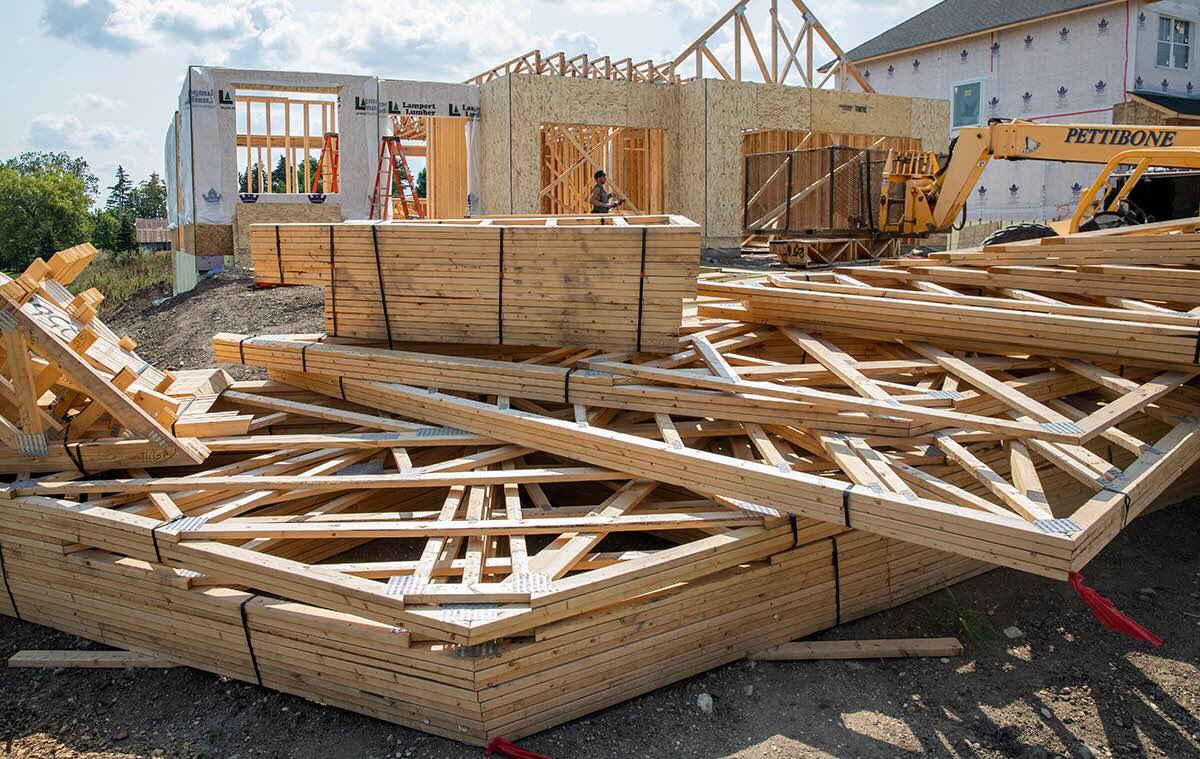
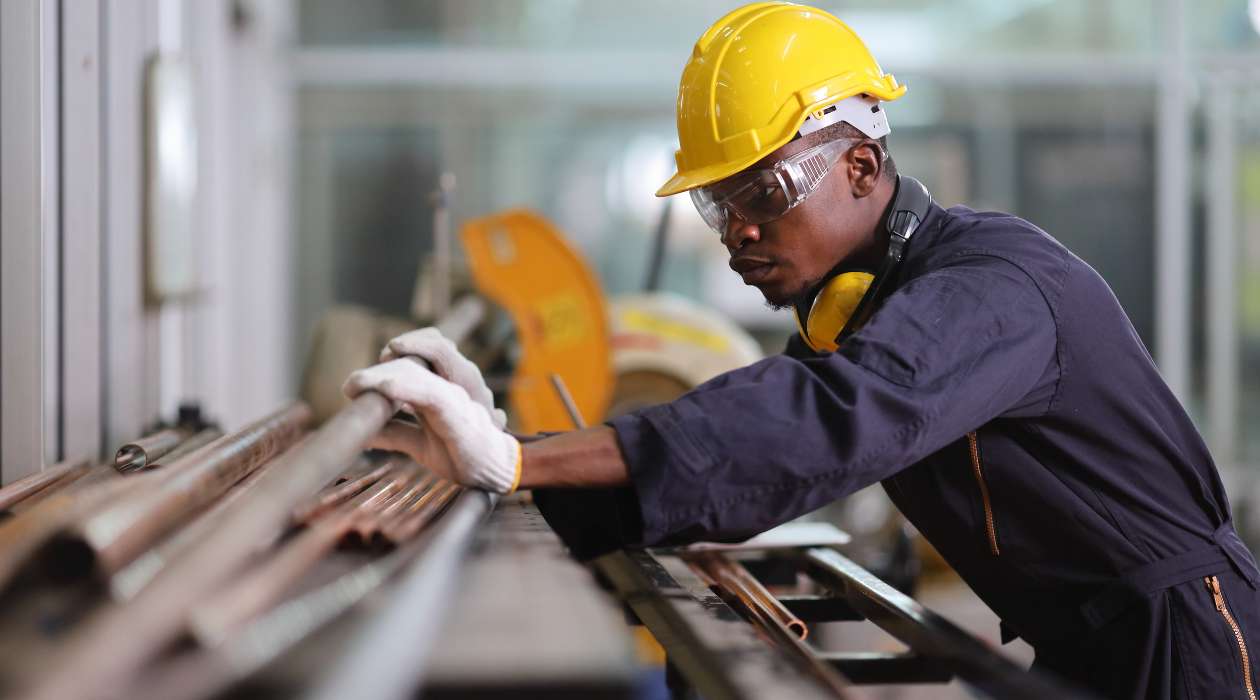

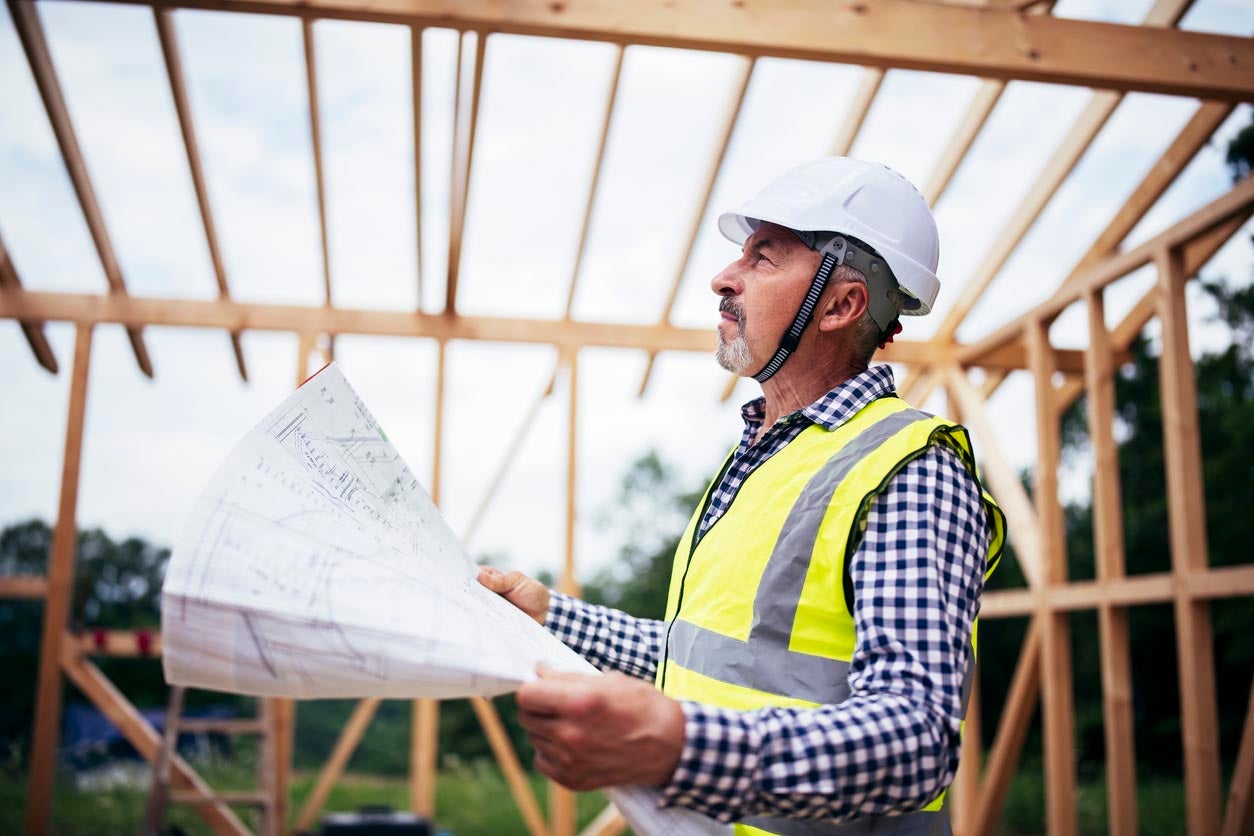
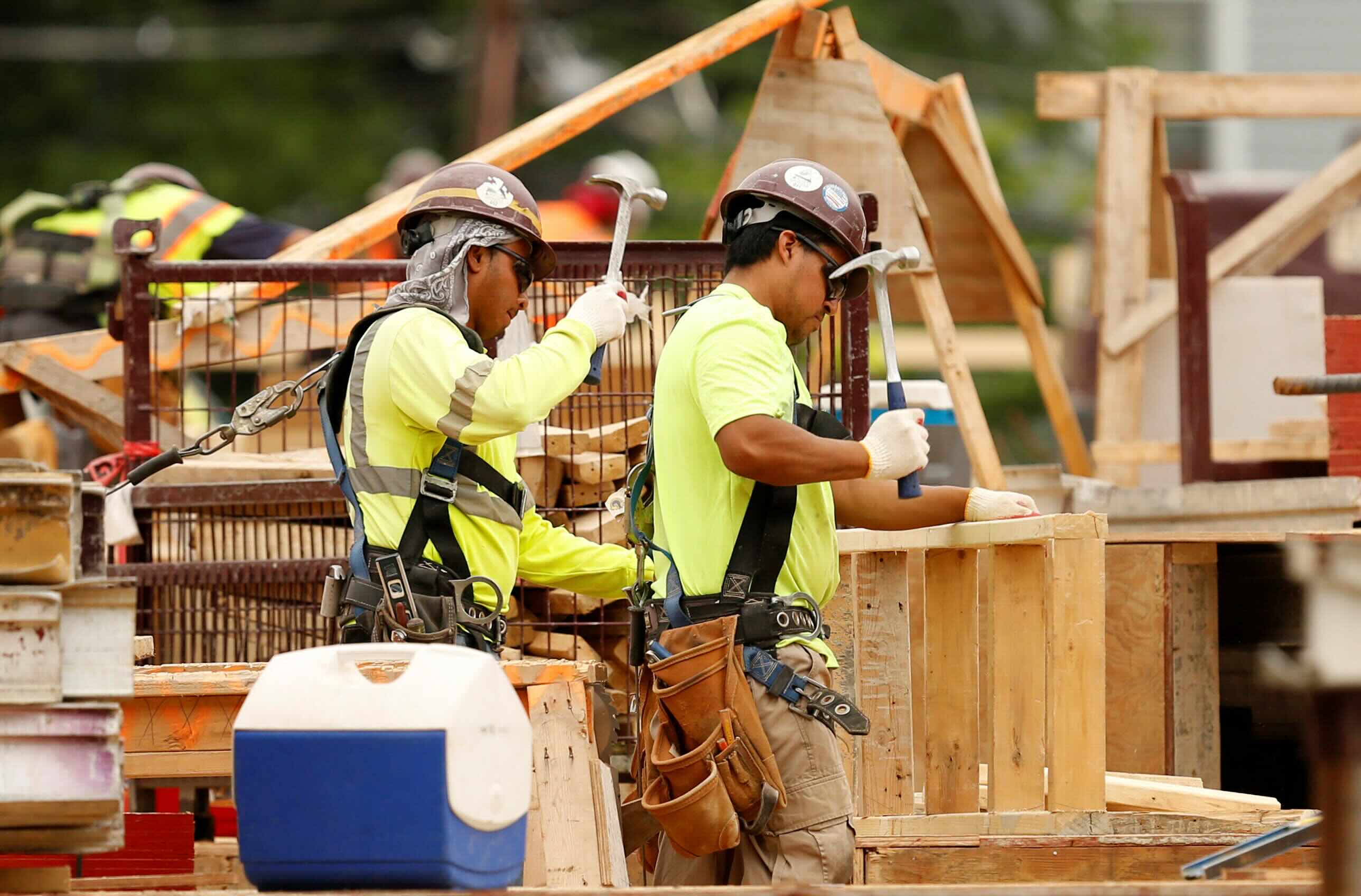
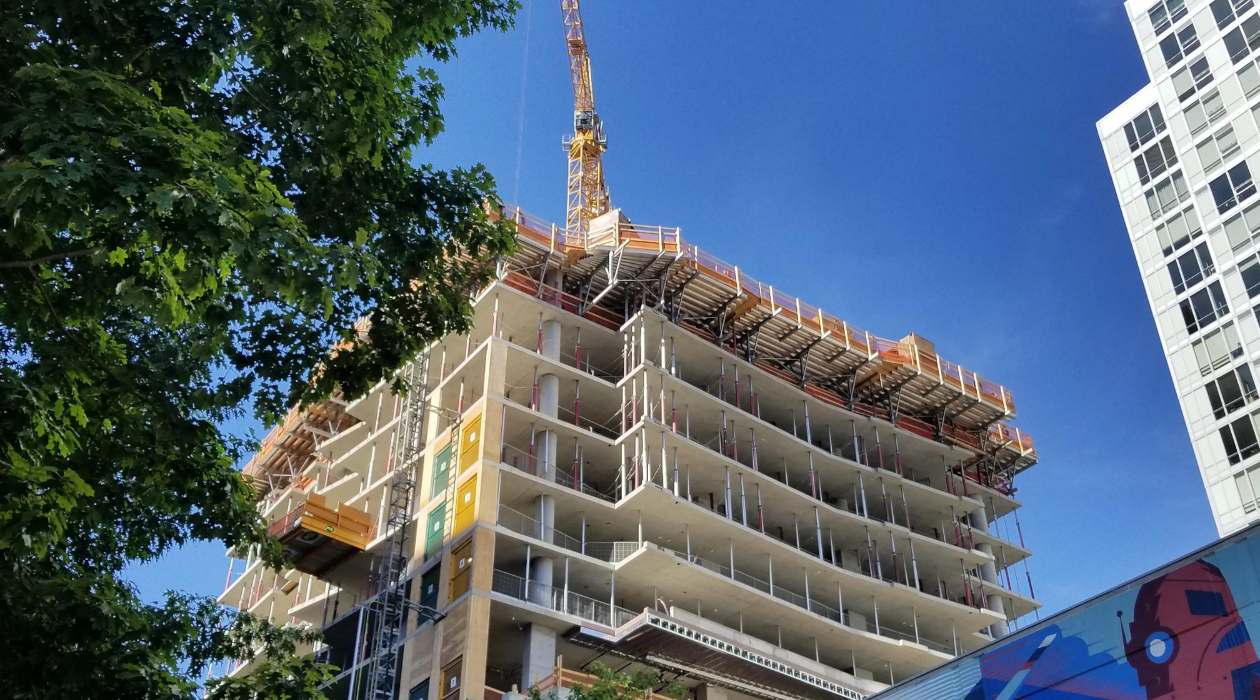

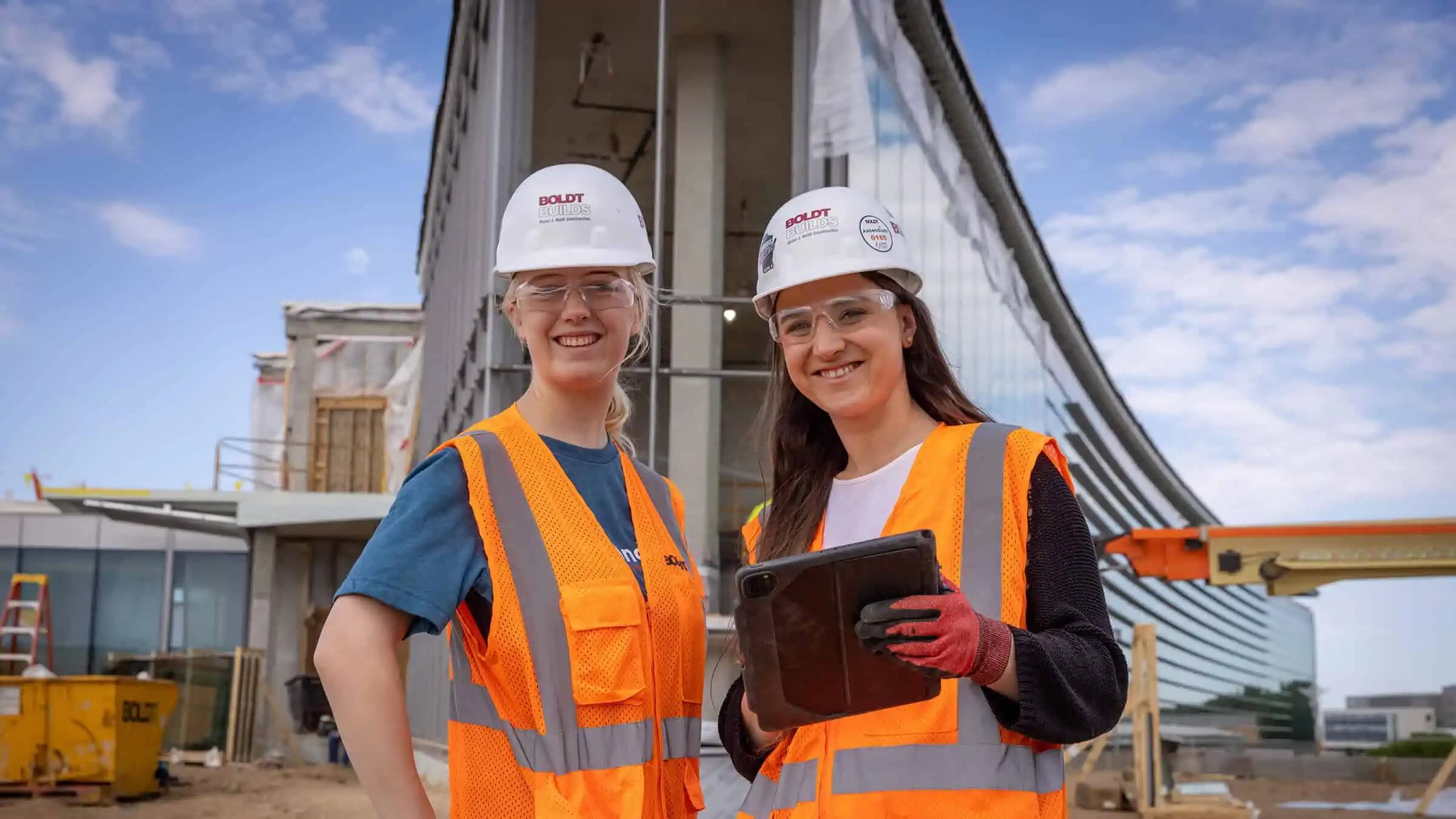
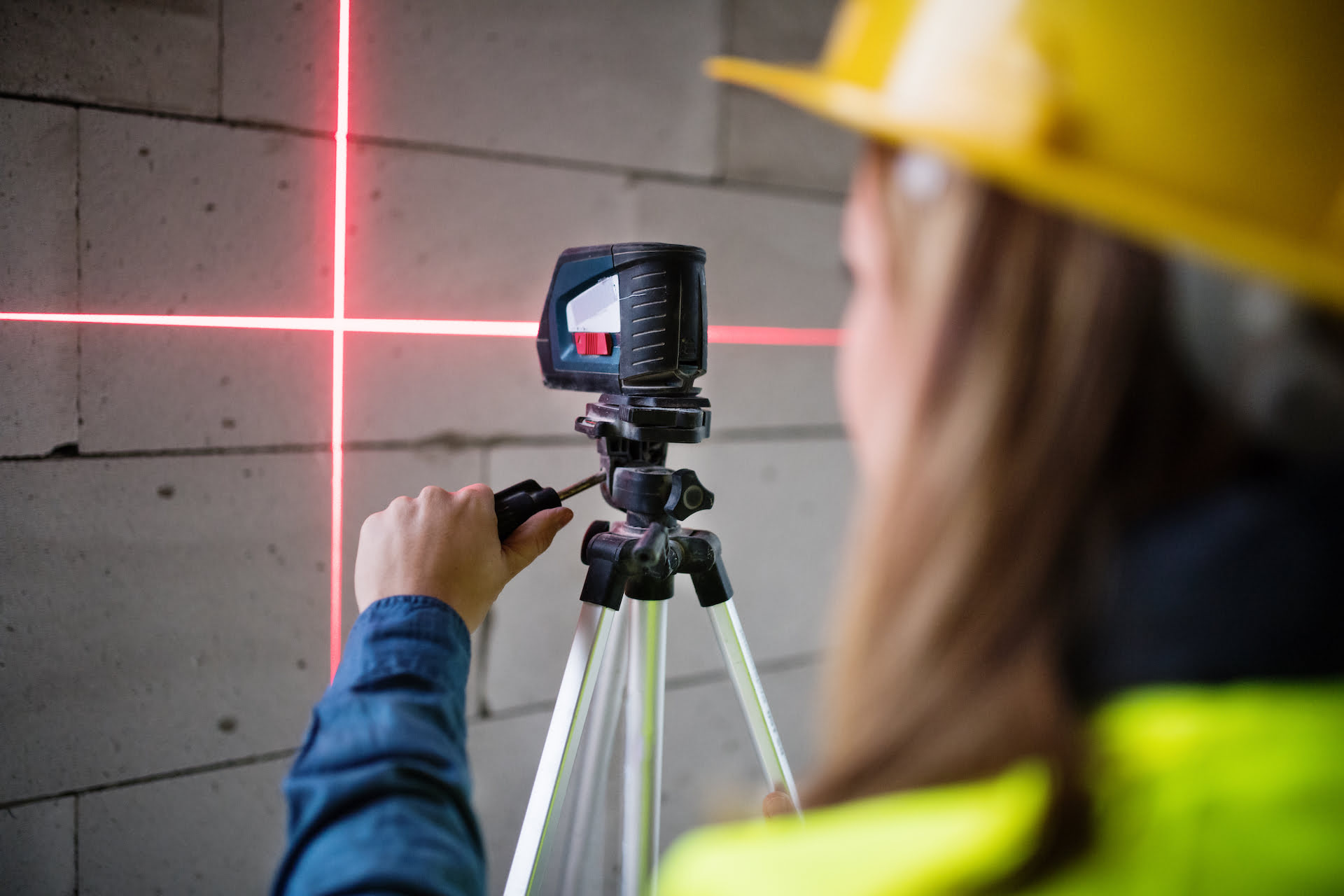
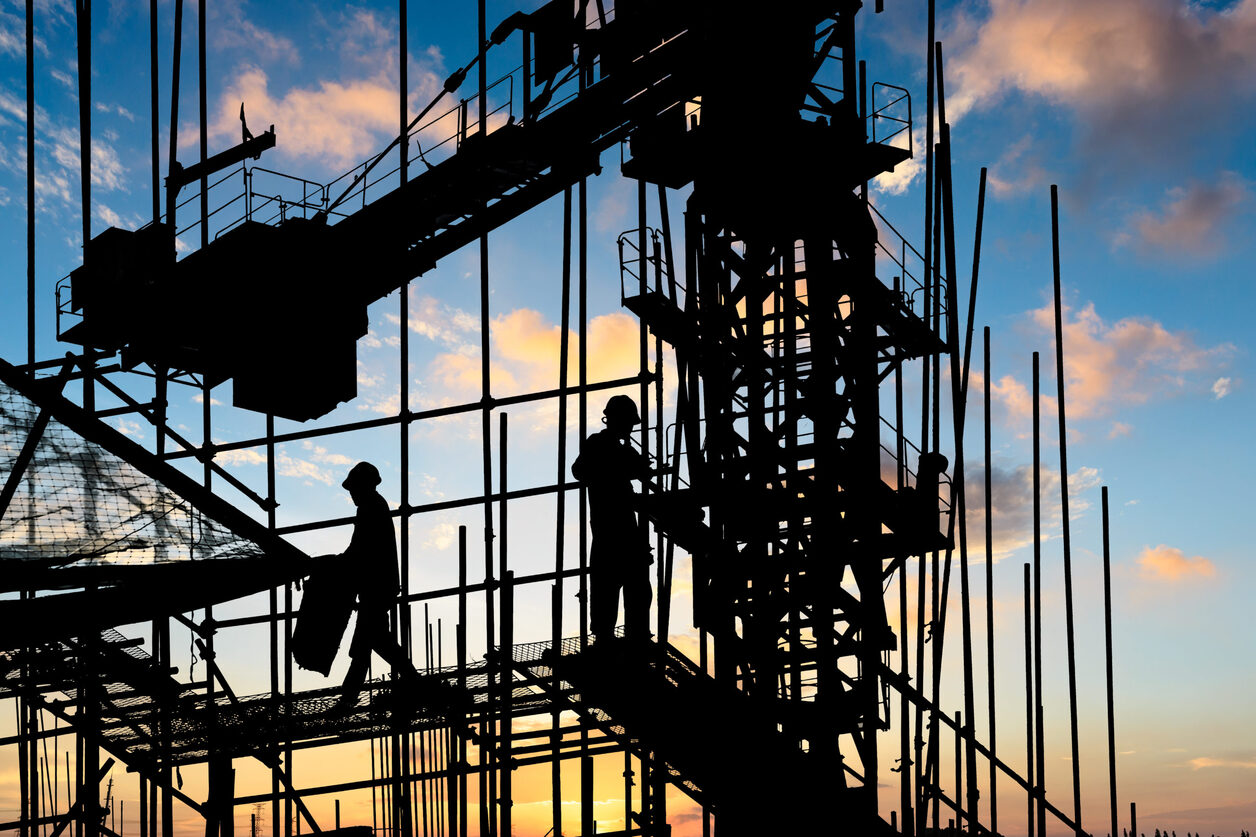
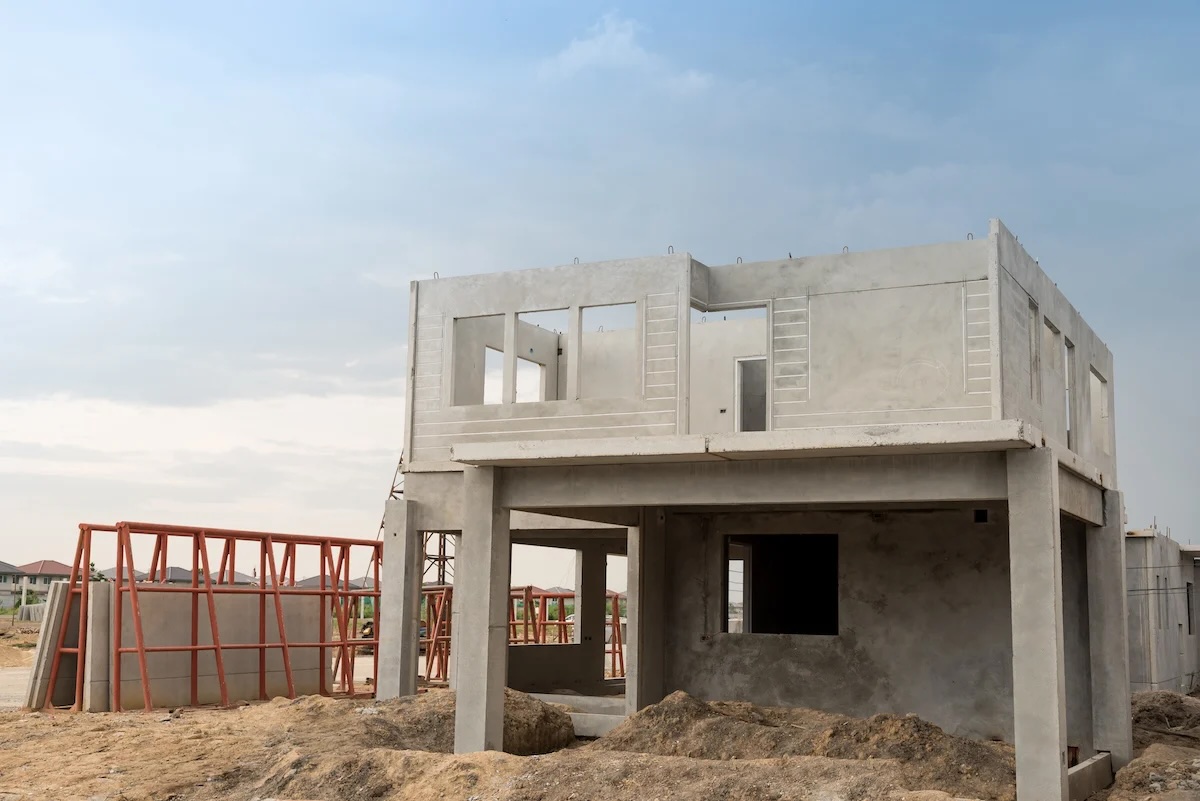
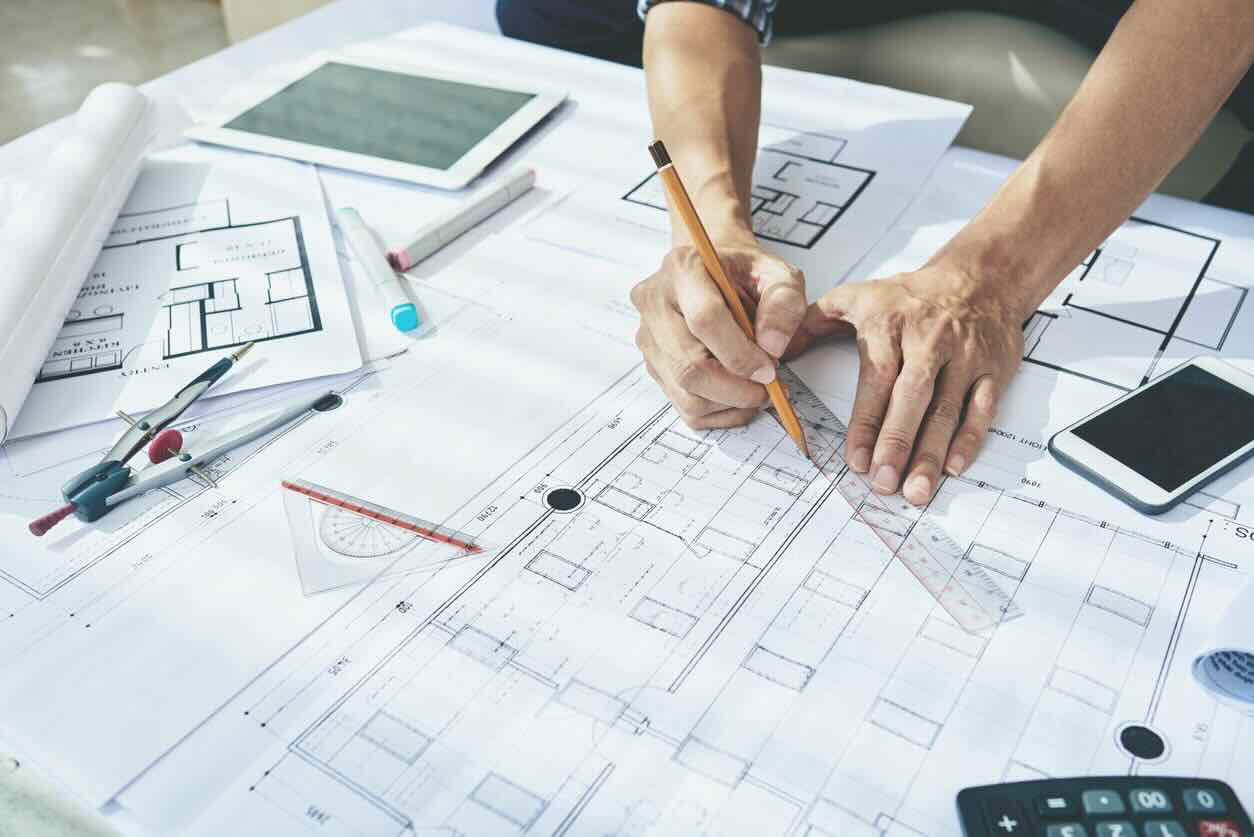

0 thoughts on “What Type Of Industry Is Construction”